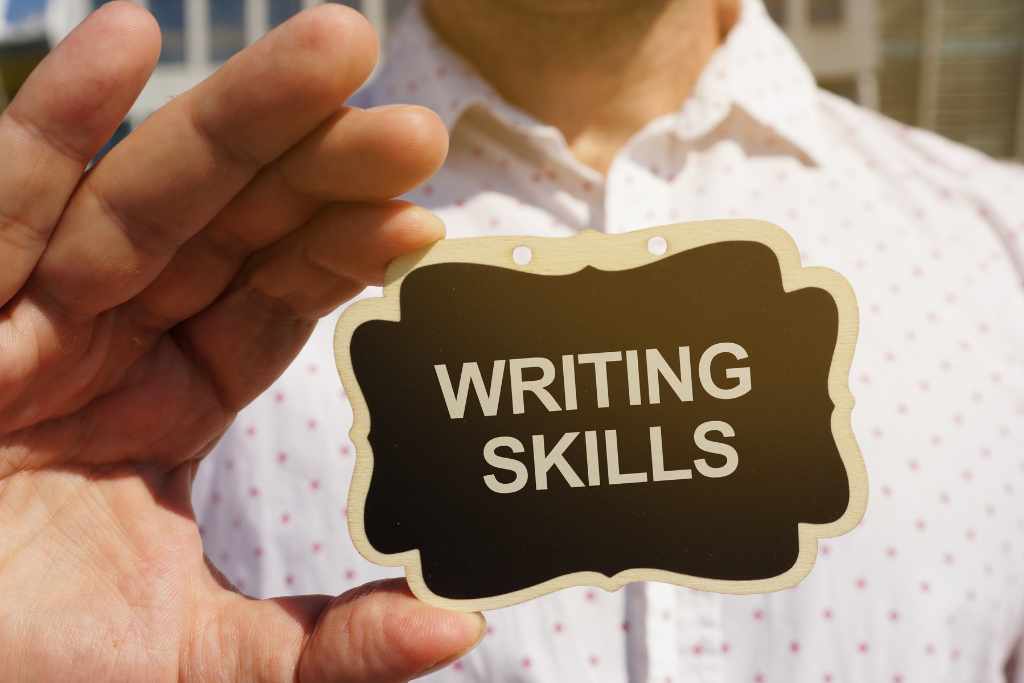Writing is an essential skill for anyone looking to make a mark in their chosen field. Whether you’re a writer, a journalist, a web designer, or an entrepreneur, the ability to write effectively can give you an edge over your competitors. However, improving your writing skills isn’t always easy. There are so many elements to consider—grammar and syntax, clarity and conciseness, storytelling techniques, and more—that it can seem overwhelming. In this blog post, we’ll discuss some of the best ways to improve your writing skills, such as reading widely and critically analyzing what you read. We’ll also look at strategies for overcoming writer’s block and staying motivated in your writing journey. So if you’re ready to get started on becoming a better writer, read on!

The different types of writing
There are many different types of writing, and each has its own purpose. Here are some of the most common:
–Expository writing is used to explain something or provide information. This type of writing is often used in textbooks and manuals.
–Narrative writing tells a story. This type of writing can be found in novels, short stories, and movies.
–Argumentative writing presents an argument or controversial opinion. This type of writing is often used in essays and persuasive speeches.
–Descriptive writing paints a picture with words. This type of writing can be found in poetry and travel writing.
By understanding the different types of writing, you can better identify your strengths and weaknesses as a writer. You can then focus on honing your skills in the areas that need improvement.

Why writing is important
There are many reasons why writing is important. It helps you communicate your thoughts and ideas, and it also allows you to document your thoughts and ideas for future reference. Writing also helps you think more clearly and logically, and it can improve your critical thinking skills. Additionally, writing can be a creative outlet that can help you express yourself in new and unique ways. Finally, writing can be therapeutic and help you process your emotions and thoughts.

How to improve your writing skills
If you’re looking to improve your writing skills, there are a few things you can do. First, read as much as you can. The more you read, the better you’ll be at understanding and utilizing proper grammar and syntax. Second, practice writing as often as possible. The more you write, the more comfortable and confident you’ll become with the written word. Third, seek out feedback from others on your writing. Ask friends, family, or even a professional editor or tutor for help in identifying areas where you need improvement. fourth, Use technology to your advantage. Take advantage of spell checkers, grammar checkers, and other tools that can help you produce error-free writing. Finally, don’t be afraid to ask for help when you need it. If you’re struggling with a particular aspect of writing, reach out to a friend or professional for assistance. By following these tips, you’ll be well on your way to becoming a better writer!

Tips for improving your writing skills
Assuming you want tips for improving writing in general:
- Read as much as you can. The more you read, the better your grasp of grammar and syntax will be. Additionally, reading exposes you to different writing styles that can help broaden your own horizons.
- Write regularly. Like with anything else, practice makes perfect. The more you write, the better you’ll become at putting your thoughts into words and communicating clearly.
- Get feedback from others. Whether it’s a friend, family member, or professional editor, getting an outside perspective on your work can be invaluable. They may be able to point out areas that need improvement or suggest ideas on how to make your writing even better.
Resources for improving your writing skills

If you’re interested in improving your writing skills, there are a number of resources that can help you. Here are a few of our favorites:
The Elements of Style by Strunk and White: This classic book is a must-read for anyone interested in improving their writing. It covers all the basics of good writing, from grammar and punctuation to style and clarity.
On Writing Well by William Zinsser: Another great book on writing, On Writing, Well offers advice on everything from developing your own voice to crafting effective sentences.
The Copywriter’s Handbook by Robert: If you’re interested in becoming a better copywriter, this book is a must-read. It covers everything from basic grammar to more advanced concepts like persuasive writing and creating headlines.
There are also a number of online resources that can help you improve your writing skills. Check out the following websites for tips and advice:
The Write Life: This website is packed with articles on everything from improving your grammar to finding your niche as a writer.
Copyblogger: As the name suggests, Copyblogger is all about copywriting. But even if you’re not interested in becoming a professional copywriter, the site’s articles on writing web content, creating compelling headlines, and more are still worth checking out.
Problogger: If you’re interested in blogging, this site is an excellent resource. It includes articles on everything from coming up with ideas for
Improving your writing skills is a journey that requires dedication and hard work, but the reward of being able to express yourself clearly and effectively will be far greater than any short-term difficulties you may encounter. Whether it’s through reading books, joining group discussions, or taking an online course, there are plenty of ways for you to hone your writing abilities. As long as you persist in developing these skills and strive for excellence, you should see significant improvements over time. Do you love to read novels? Everyone Should Make Time To Read Novels








